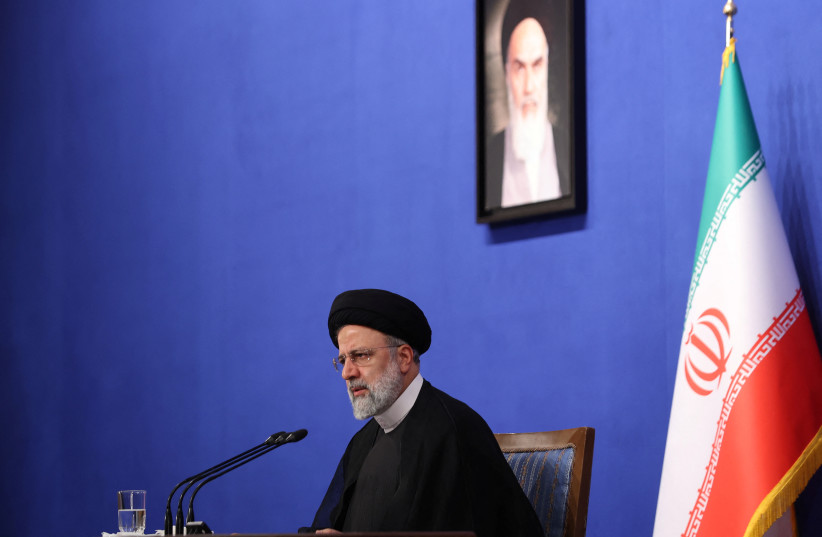WASHINGTON – As Iran and the superpowers are on the verge of reviving the 2015 nuclear agreement, the Joint Comprehensive Plan of Action, several Jewish organizations are expressing concern.
What are the Jewish organizations saying?
According to AIPAC, the American Jewish Committee and B’nai B’rith, the 2015 agreement was flawed. On the other hand, the progressive group J Street is supportive of restoring the deal. Other organizations prefer not to take a public stance before a deal is signed.
AIPAC has “serious concerns about a prospective deal that would give the world’s leading sponsor of terrorism access to $100 billion per year and fail to meet President [Joe] Biden’s own standards of a ‘longer and stronger’ nuclear agreement, all while the regime is trying to assassinate Americans on US soil,” spokesman Marshall Wittmann said.
Congress must review the deal, including all side agreements, assess the implications for America and Israel, and vote on this important national security question, he said.
The American Jewish Committee has been following the issue closely and has been “engaged with a broad range of US, Middle East, European and other officials and analysts from the onset of negotiations to restore the flawed 2015 deal,” said Jason Issacson, the organization’s chief policy and political-affairs officer.
“If or when an accord is concluded, we intend to study it carefully and consult with our own and affected governments before issuing a detailed response – a process we followed in 2015,” he said.
B’nai B’rith CEO Daniel Mariaschin raised concerns over the possibility of signing the deal as well.
"Why are the mistakes of 2015 seemingly being repeated?"
B’nai B’rith International
“We are deeply concerned over the prospect of an agreement to put the JCPOA back in place,” he said. “Why are the mistakes of 2015 seemingly being repeated?”
“Missile development, enhanced centrifuge capacity and Iran’s failure to allow intrusive inspections of military sites appear to be unaddressed, as they were seven years ago, leaving Iran’s pathway to a bomb unimpeded,” Mariaschin said. “Eliminating sanctions and freeing up billions of dollars for Iran to fund its malign, destructive behavior in the region and beyond is more than disturbing.”
The agreement “does nothing to address Tehran’s genocidal designs on Israel, its support for terrorism, nor its incessant Holocaust denial,” he said.
"Even at this late hour, we should exit this process, and instead address Tehran’s continuing real-time threats to Americans, to Israel and to our other allies and friends in the region."
Daniel Mariaschin, CEO of B’nai B’rith International
“Can a regime which has brazenly moved its nuclear program forward and unleashed its proxies to attack American troops in Syria as recently as last week, in the midst of negotiations, be trusted to abide by this or the provisions of any agreement? Even at this late hour, we should exit this process and instead address Tehran’s continuing real-time threats to Americans, to Israel and to our other allies and friends in the region,” Mariaschin said.
Nathan Diament, executive director of the Orthodox Union Advocacy Center, said even though the OU had not yet seen all the details, “Based on what’s been said publicly by Israeli leaders, including the head of the Mossad, and been reported in the press, we at the Orthodox Union are obviously gravely concerned that the Biden administration is about to sign on to a renewed deal that will hand over millions of dollars to the world’s leading state sponsor of terrorism.”“The alleged deal rewards Iran, gives a stamp of approval to Iran’s nuclear activity and does nothing to curtail Iran’s aggressive terrorist network,” he said. “Not only will the deal endanger Israel’s security, it threatens the security of the broader Middle East and the United States.”
J Street supports reviving the deal and dedicated an entire section of its website to it under the headline “Iran diplomacy works.”
“Securing a return to the deal and blocking Iran’s paths to a nuclear weapon would be another major victory for President Biden,” said Dylan Williams, J Street’s senior vice president of policy and strategy.
“[Former US president Barack] Obama’s original deal had strong support because it blocked Iran’s path to nuclear weapons, and it only became more popular after [former US president Donald] Trump pulled out and we saw the alternative of an unrestrained, escalating nuclear program,” he said.
“We’re backing Biden’s efforts 100%,” Williams said. “If a return to the deal comes out as we expect, and it verifiably blocks Iran’s nuclear program, then J Street is ready to lead the campaign in our community, in Congress and across the country to build support and get this done.”
“We’re backing Biden’s efforts 100%. If a return to the deal comes out as we expect and it verifiably blocks Iran’s nuclear program, then J Street is ready to lead the campaign in our community, in Congress and across the country to build support and get this done”
Dylan Williams, senior vice president of policy and strategy at J Street

